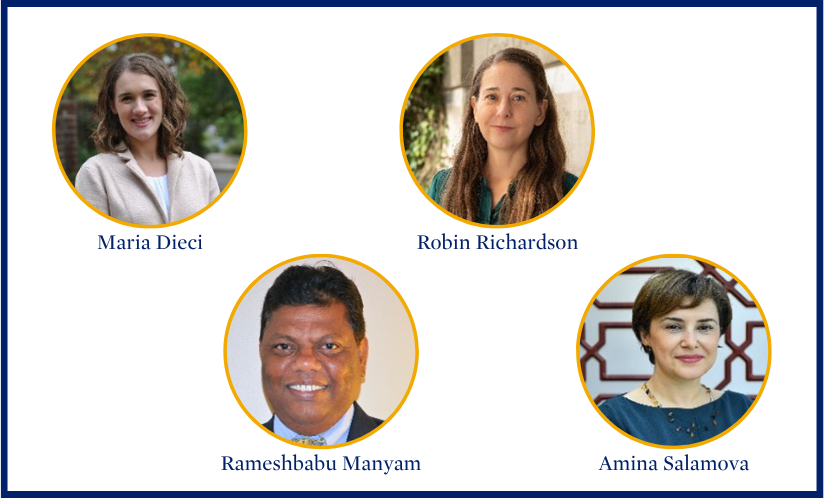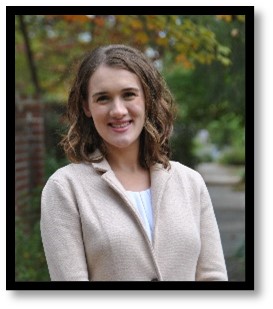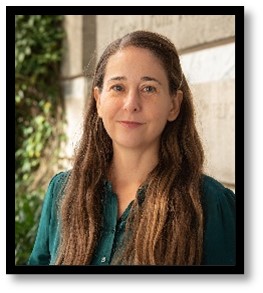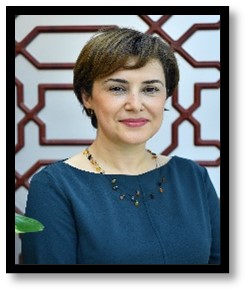Dean’s 2023 Pilot Innovation Award Winners Announced

The Rollins School of Public Health is pleased to announce the recipients of the 2023 Dean’s Pilot Innovation Awards. These awards, ranging in sum from $20,000 to $50,000, support full-time junior faculty with projects that are new, highly innovative, currently unpublished and unfunded, and that possess the potential to lead to larger extramural grants. Winners received their funding for a full calendar year starting September 1, 2023. Learn more about the faculty being recognized this year, and their projects, below.

Maria Dieci
Faculty Bio: Maria Dieci, PhD is an Assistant Professor in the Department of Health Policy and Management. Her research focuses on healthcare access and quality in low-resourced settings, as well as provider and patient decision-making.
Project Title: Caregiver Decision-making and Quality of Care for Childhood Fevers in Pharmacy Settings
Project Summary: Febrile illness is a leading cause of death and serious illness for millions of children across sub-Saharan Africa, despite the availability of diagnostics and appropriate medications. Unfortunately, many fevers are not treated appropriately due to incorrect or no diagnosis, and use of inappropriate medications. Inappropriate treatment has uncertain health and economic costs to individuals as well as at a population level. This study will provide visibility on this issue through an analysis of care-seeking behavior, diagnosis/treatment decisions, and illness episode outcomes in children with fevers who seek care in Kenyan pharmacies. It will do so by using novel survey data collected from pharmacists and 500 caregivers, and existing anonymized administrative data on pharmacy sales in 40 pharmacies. This pilot will contribute toward a better understanding of the causes and consequences of childhood fevers and associated care-seeking trajectories, which is crucial for effective management of childhood illness in sub-Saharan Africa.

Rameshbabu Manyam
Faculty Bio: Rameshbabu Manyam, PhD is an Assistant Professor in the Department of Biostatistics and Bioinformatics. His research focuses on data science, big data analytics, and risk prediction frameworks using machine learning algorithms and high-performance computing environments.
Project Title: Scalable Machine Learning-Powered Analytics Framework for Effectively Predicting Hospital Readmission After Coronary Artery Bypass Grafting
Project Summary: Coronary artery bypass grafting (CABG) is the most commonly performed heart surgery in the US. CABG is an inpatient procedure that requires hospital stay after surgery. Patients subsequently leave the hospital, but a sizable minority (up to 20%) are ultimately readmitted for a variety of reasons. These hospital readmissions are costly and sometimes fatal. In many situations, these readmissions are potentially predictable and avoidable. Using cutting-edge machine learning algorithms, this project will analyze longitudinal electronic health records of patients who underwent isolated CABG from 2016-2022 at Emory hospitals and assess significant risk factors associated with readmission. Study findings will inform a basis to develop an enhanced risk prediction model to accurately identify those patients at high risk for readmission. With accurate predictive analytics models and user-friendly dashboards, emerging from this project, health caregivers can 1) more appropriately decide on a patient's readiness for discharge, and 2) recommend better care for patients who are at higher risk of readmission following CABG.

Robin Richardson
Faculty Bio: Robin A. Richardson, PhD is an Assistant Professor in the Department of Epidemiology at the Rollins School of Public Health. Her work examines the social, contextual, and structural causes of poor mental health, intimate partner violence, and low empowerment of women.
Project Title: Ensuring Women’s Rights to Improve Child Health: Evaluating the Role of Social Policy
Project Summary: Low empowerment of women, broadly defined as women’s diminished scope of control over key life choices, is a major threat to women’s well-being and child health. Legislation may be one pathway to increase women’s empowerment; however, there is a dearth of evidence regarding if legislation affects women’s empowerment, and if so, which policies are most effective. Our work helps fill this evidence gap by investigating the effect of eight categories of laws that ensure women’s rights (mobility, workplace, pay, marriage, parenthood, entrepreneurship, assets, pensions) on changes in women’s empowerment and key child health indicators across approximately 75 low- and middle-income countries. We will also evaluate if those experiencing social and economic disadvantage are especially affected by policy changes. Our project will generate policy-relevant evidence regarding which types of legislation are most effective at increasing empowerment, how these changes affect child health, and if these policies impact health inequalities.

Amina Salamova
Faculty Bio: Amina Salamova, PhD, is Assistant Professor in the Gangarosa Department of Environmental Health. Dr. Salamova uses novel exposure assessment tools to investigate human exposure to harmful chemical contaminants and their effects on health focusing on susceptible populations.
Project Title: Assessing Toxic Chemical Exposures in E-Waste Recyclers in Nigeria
Project Summary: Electronic equipment waste (e-waste) refers to equipment that is at the end of its useful life and is discarded. Most e-waste is frequently moved from developed to developing countries where it is dismantled in informal settings, resulting in exposure to toxic substances. Flame retardant chemicals and per-and polyfluoroalkyl substances (PFAS) have been associated with e-waste and elevated levels have been reported in e-waste recyclers. Nigeria is the second largest e-waste receiver in the world; however, no studies have focused on exposures among Nigerian e-waste workers. In this project, we will examine concentrations of PFAS and flame retardants in serum and urine samples collected from e-waste recyclers involved in direct e-waste dismantling in Nigeria and determine the effect of recycling activities on chemical levels. The results will provide data on exposure to multiple chemicals in Nigerian e-waste recyclers, and lay the foundation for future research to understand chemical exposures among e-waste recyclers and associated adverse health outcomes.


